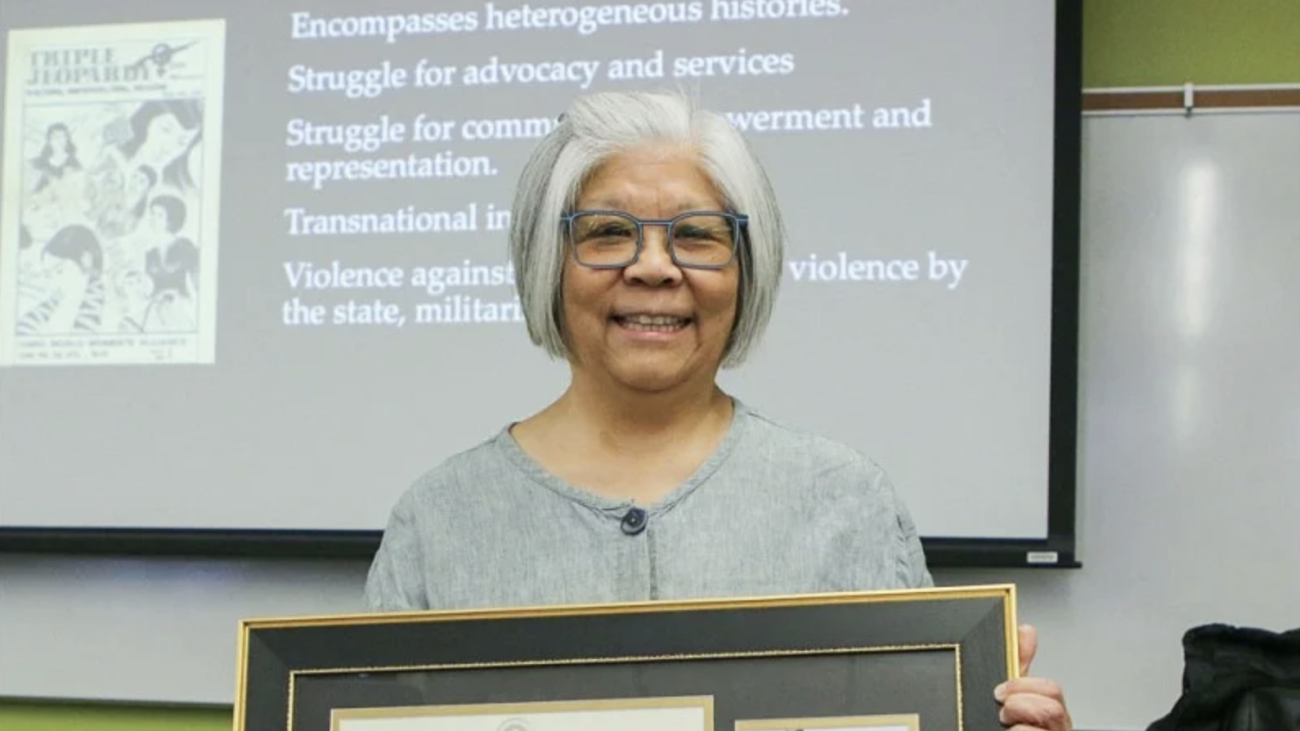
Editor's note: Tykeson Teaching Award winner Lynn Fujiwara is a CSWS Advisory Board member, faculty affiliate, and co-convenor of the Women of Color Project. The Tykeson Teaching Award is an annual prize given to one outstanding faculty member in each division of the College of Arts and Sciences who goes above and beyond in the classroom. Story from Around the O.
Providing individual feedback to each student ended up being the best way for Lynn Fujiwara, associate professor in the Department of Indigenous, Race and Ethnic Studies, to learn how to connect with students.
Fujiwara was a graduate student at a university that had a policy of not issuing grades. So, Fujiwara had to write extensive feedback for each student for each assignment, as well as their final assessment. That showed Fujiwara the importance of getting to know individual students, whether she has a large or small class size.
When Fujiwara came to the UO more than 20 years ago, she brought the practice of in-depth feedback when grading student assignments. And that practice was an eye-opener for them.
Despite the changing role of technology in classrooms, Fujiwara continues to connect with students on classroom concepts, no matter what class she’s teaching. At the start of her classes, she makes sure to not only provide an overview of the day and the concepts they’ll be covering, as well as why those concepts matter in everyday life, and not just as an academic assignment.
“We all live in this world, and the material that we teach about is all around us,” Fujiwara says. “I’m trying to get them to be able to start questioning, interrogating, analyzing, asking questions. And giving them a concept that they can actually think about as an active term that makes a difference in our world.”
The active role that Fujiwara has played in the classroom has made a difference throughout CAS and the university. She’s played an important part in redefining what an anti-racist, feminist classroom looks like, says Ernesto Javier Martínez, associate professor and head of the Department of Indigenous, Race and Ethnic Studies.
“She is a dedicated and approachable educator who sets the bar very high for what a liberatory ethnic studies education should look and feel like,” Martínez says. “Our students are the better for it.”
And her students remain—after all these years—the best monitors for how well she runs her class. “I want the classroom to feel like a community, where we all care about each other’s learning,” she says.

